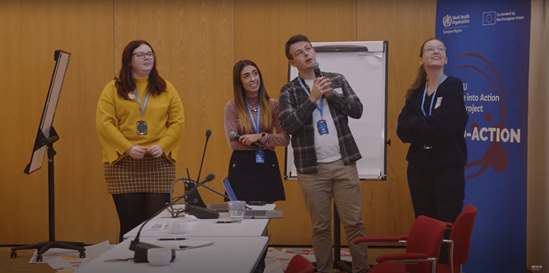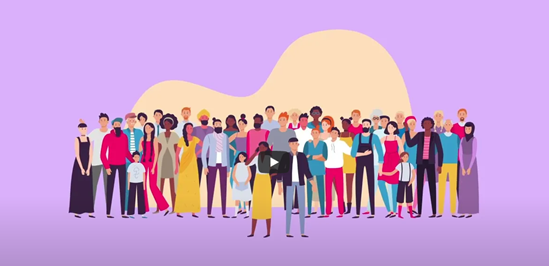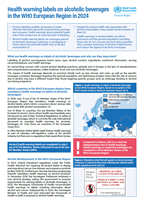Raising awareness on alcohol harms through labelling
WHO is committed to reducing the global burden of disease caused by alcohol consumption. Alcohol consumption is causally linked to over 200 health conditions, including cancers, cardiovascular diseases, liver diseases, road injuries, violence, suicides, tuberculosis and HIV/AIDS. WHO works to ensure that individuals are fully informed about these risks so they can make healthier choices.
Public awareness of the range of harms associated with alcohol consumption is low, especially when it comes to cancer. Research conducted by WHO shows that many people are unaware of the risks of developing a range of specific cancers, with as few as 15% knowing of the link between alcohol and breast cancer.
To enforce this “right to know”, governments should ensure that consumers are given access to this information, including by making the labelling of alcoholic beverages mandatory.
Product labelling allows the largest reach – as consumers are exposed to this information directly at the point of purchase and consumption. Labels can include details on alcohol content, ingredients, nutritional values and potential health risks. Health warning labels can raise awareness and understanding of the risks associated with alcohol consumption. They can also be an important tool to increase public support for other policy measures, such as pricing policies and marketing restrictions, that are proven to reduce alcohol-related harm. Prominent health warnings can also help decrease product appeal, as product labelling is often used as a marketing tool.
In 2024, only 13 out of the 53 countries of the WHO European Region had mandatory health warnings on alcohol labels, and only 3 of those were in the European Union (EU).
WHO-led initiatives to advance labelling of alcoholic beverages
As part of the Evidence into Action Alcohol Project (EVID-ACTION) to bring scientific evidence to promote and support the implementation of effective alcohol policies for the communities of the EU, Iceland, Norway and Ukraine, WHO is generating evidence on how health warnings – especially those highlighting the link between alcohol and cancer – can help protect public health. In addition to developing evidence, WHO is also laying the groundwork to help countries in the Region prepare for possible future labelling policies.
This includes supporting governments in developing and implementing these policies, as well as engaging researchers, young people, civil society, health professionals and broader audiences to raise awareness and build capacity on labelling. This is done with the support of the Technical Advisory Group on Alcohol Labelling, currently consisting of 16 members, providing scientific and legal advice to WHO.














